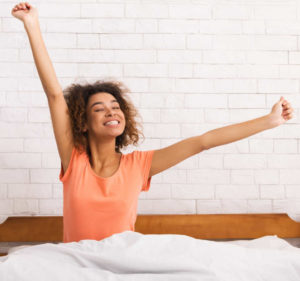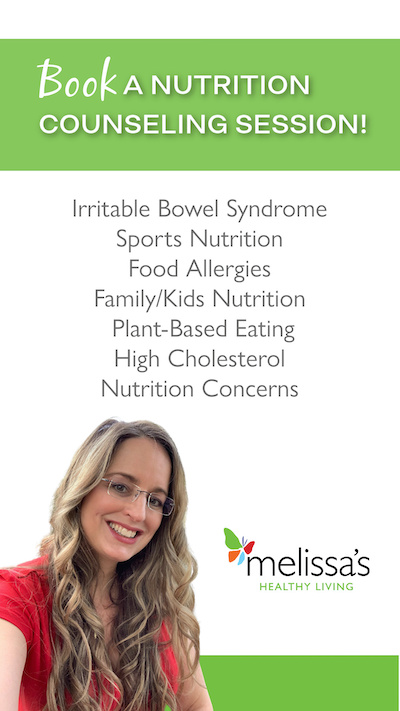
So many demands and lots of electronic temptations put our sleep hygiene at risk. Here are essential strategies for a good night’s sleep you don’t want to miss!
Tik tok on the clock − “Wake up in the morning feeling like P-Diddy.” While Kesha boasts about how to get a good night’s sleep, many of us non-pop stars can’t do the same. When tired, it becomes much more difficult to make proper nutrition and fitness choices. Sleep-deprived workout, anyone? I didn’t think so. Often, a lack of sleep can lead to over-eating and sedentary behaviors. It’s Brain Awareness Week, and sleep is one of the most important ways to take care of your brain! If you are like many of my clients who need help getting more restorative sleep or want to improve basic sleep hygiene, keep reading. And make this week the time to goal set how to get a good night’s sleep!
Everyone has his or her tricks for falling asleep. Like the Millennial version of an old wives’ tale, we swear by improving sleep by banning both phones and Netflix from the bedroom. We have even gone as far as cutting off our beloved cup of Joe at the strike of noon. Regardless of these efforts, you still may struggle to get a good night’s sleep. If you are feeling discouraged, here are strategies you can choose to help you fall and stay asleep.
This post contains affiliate links. As an Amazon Associate, we earn from qualifying purchases. The links are noted with an asterisk (*) or Amazon image.
Embrace Sunlight
The brain has an internal “master-clock” that regulates our circadian rhythms, also known as our sleep cycles. (1) It maintains balance and sleep patterns through environmental cues, such as light. (2) This is why people get tired after sundown and wake up with the sunshine. (2) Research shows that daytime exposure to high-intensity natural light actually increases the duration of sleep and improves overall sleep quality. (1) So spending more time out in the sunshine is best for your sleep!
Be A Nature-Lover
Another adventurous way how to get a good night’s sleep is to grab your tent and sleeping bag and head to the great outdoors! By sleeping under the stars, you can correct your sleep cycle, which often gets disrupted by artificial lighting in work and home environments (3), Entrainment of the Human Circadian Clock. (4) Meanwhile, other research has shown that exposure to trees can have a calming effect, which equally translates into better sleep. In fact, the Japanese did a study on the physiological effects of shinrin-yoku, which means making contact with and taking in the atmosphere of the forest. Walking in the woods or stationary viewing of the trees reduced levels of the stress hormone cortisol in saliva samples. (4) When surrounded by nature, people tend to be less stressed, have a more relaxed pulse, and even have better blood pressure. (5) Camping trip, anyone?
Noise Pollution, Breathing Better, and Sleep Patterns
Hey, I’m trying to sleep over here! A snoring partner, a neighbor’s loud phone call, or floodlight outside your bedroom window may all prevent you from getting a good night’s sleep. Noise pollution negatively affects your sleep quality. (6) Those middle-of-the-night wake-ups affect the brain’s ability to remain in a deep sleep, which is how the body recuperates from its day. But, when it’s interrupted by noise or light, it leaves overwhelming feelings of grogginess and brain fog. In other words…it’s going to be one of THOSE days. But, instead of dragging your feet through the day, check out these tips to eliminate noise pollution and improve your sleep quality!
- Air purifier. Air purifiers can serve a dual purpose. I have the Alen Pro BreatheSmart* and Blueair Classic*. They can create white noise and also decrease allergens, so that you can breathe more easily. White noise and easy breathing – a recipe for more restorative sleep. They are my personal recipe for a good night’s sleep.
- Earplugs. Earplugs are an inexpensive solution to minimizing noise pollution but won’t drown out noise completely. Also, you need the right fit, especially if you’re a side sleeper, so a jabbing in your ear won’t disrupt your sleep.
- Sound Machines. Sound machines help drown out any nocturnal noise. When traveling – as I’m often staying with a bunch of kids or end up getting a hotel room next to late-night partiers – I pack the Dohm sound machine*. I prefer it over digital sound apps. But some of my clients like white noise apps because they can choose from an array of sounds, like the White Noise App, Relaxing Melodies or Atmosphere to foster a quiet and relaxing environment perfect for sleep.
If you’re still having issues figuring out how to get a good night’s sleep, talk with your doctor to rule out any medical causes. For example, heartburn, diabetes, respiratory problems, cardiovascular disease, diabetes, and certain prescription medications may all disrupt sleep quality. (7)
Artificial Light’s Effect on a Good Night’s Sleep
Unlike with natural light, chronic exposure to artificial light can disrupt our precious sleep cycles: Television. Laptops. Smartphones. Kindles. Nooks. While we may adore having our beloved technology in the bedroom, they can ultimately delay our ability to fall asleep. Research shows that using an e-reader in the hours leading up to bed can negatively impact one’s overall sleep quality. (1) Even as you begin to turn through those last pages, or watch the last few minutes of an episode, dim down the digital to signal to your brain, it’s getting darker and closer to bedtime.
Blocking out Artificial Light for Restorative Sleep
There is almost nothing more satisfying than a great night’s sleep. In order to keep your master clock working at its best, use these tips to reduce light in the bedroom!
- Close the door fully. Turn out the hallway light! For some of us, a small amount of light seeping through the tiny space is enough to keep us from restful sleep – even when our eyes are shut! If a family member insists on hallway lighting, try using a motion detector hallway nightlight* as a compromise.
- Try blackout shades. These help limit any light coming from street lamps, a neighbor’s home, or passing cars.
- Apply dark post-it notes.* Black paper or tape works well too on small sources of light like outlets, smoke alarms, or alarm clocks.
- Dim the lights. About 30 minutes before you begin to wind down, alert your internal clock to start winding down by dimming the lights!
If you’re concerned about the importance of kids’ sleep quality, check out Getting Enough Sleep May Help Prevent Weight Gain. For more inspiration for brain health week, see How to Minimize Aging and Boost Brain Health. Stop back later this month for more tips on getting a good night’s sleep!
References
- Blume C, Garbazza C, et al. Effects of light on human circadian rhythms, sleep and mood. Somnologie. 2019 Aug 20; 23: 147-156. https://link.springer.com/article/10.1007/s11818-019-00215-x
- https://www.ninds.nih.gov/disorders/Patient-Caregiver-Education/Understanding-Sleep
- Roenneberg T, Merrow M. Entrainment of the human circadian clock. Cold Spring Harbor Symposia on Quantitative Biology. 2007; 72:293-299. https://www.ncbi.nlm.nih.gov/pubmed/18419286
- Park BJ, Tsunetsugu Y, et al. The physiological effects of Shinrin-yoku (taking in the forest atmosphere or forest bathing): evidence from field experiments in 24 forests across Japan. Environ Health Prev Med. 2009 May 2; 15(1): 18-26 https://ncbi.nlm.nih.gov/pmc/articles/PMC2793346/pdf/12199_2009_Article_86.pdf
- Shanahan DF, Bush R, et al. Health benefits from nature experiences depend on dose. Scientific Reports. 2016 June 23; 6:28551. Doi: 10.1038/srep28551. https://ncbi.nlm.nih.gov/pmc/articles/PMC4917833/
- Halperin D. Environmental noise and sleep disturbances: A threat to health? Sleep Sci. 2014 Dec; 7(4):209-12. https://www.ncbi.nlm.nih.gov/pmc/articles/PMC4608916/
- Environmental noise and sleep disturbances: a threat to health? https://www.helpguide.org/harvard/medical-causes-of-sleep-problems.htm



